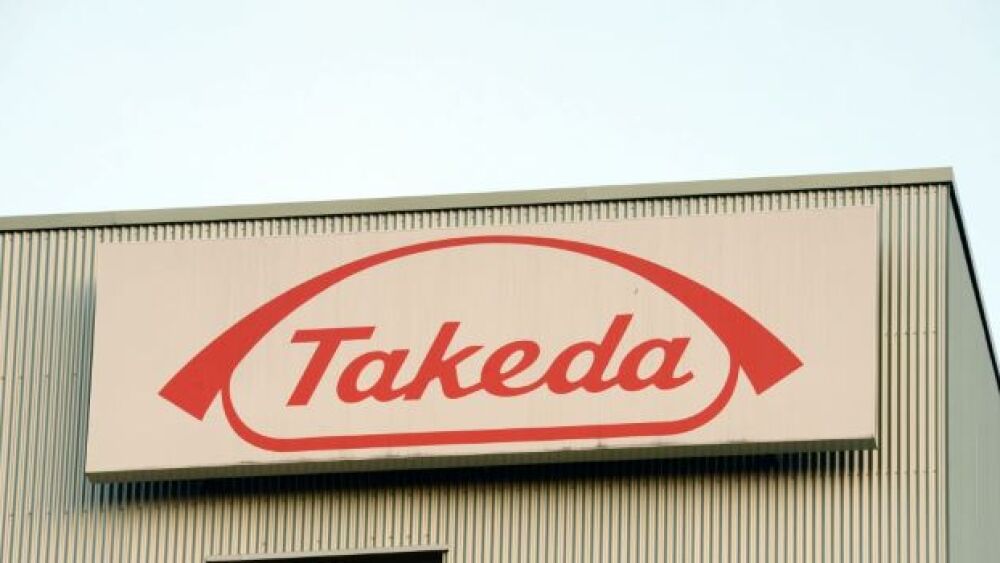The FDA awarded a number of designations for Takeda’s candidate drug EXKIVITY in the treatment of adult patients with locally advanced or metastatic non-small cell lung cancer.
Patrick Seeger/picture alliance via Getty Images
The U.S. Food and Drug Administration (FDA) today awarded a number of approvals for Takeda Pharmaceutical’s candidate drug EXKIVITY in the treatment of adult patients with locally advanced or metastatic non-small cell lung cancer.
Takeda was granted priority review and received a Breakthrough Therapy designation, Fast Track designation, and Orphan Drug designation, as the first and only approved oral therapy designed to target epidermal growth factor receptor (EGFR) Exon20 insertion mutations. EXKIVITY, also called mobocertinib, is a first-in-class oral tyrosine kinase inhibitor (TKI) indicated for NSCLC cases that have progressed on or after platinum-based chemotherapy.
Patients with EGFR Exon20+ NSCLC make up around one to two percent of patients, and the disease is more common in Asian populations than in Western communities. It carries a worse prognosis compared to other EGFR mutations and current chemotherapy interventions provide little to no benefit.
“EGFR Exon20 insertion+ NSCLC is an underserved cancer that we have been unable to target effectively with traditional EGFR TKIs. The approval of EXKIVITY (mobocertinib) marks another important step forward that provides physicians and their patients with a new targeted oral therapy specifically designed for this patient population that has shown clinically meaningful and sustained responses,” said Pasi A. Jänne, M.D., Ph.D., from the Dana-Farber Cancer Institute, in a statement.
The FDA’s Accelerated Approval designation is based on the drug’s overall response rate (ORR) from Phase I and II clinical trial results, which demonstrated a median duration of response (DoR) of around 1.5 years. Researchers tested the drug on 114 patients who were treated with the 160 mg dose.
Results presented at the 2021 American Society of Clinical Oncology Annual Meeting showed an ORR of 28 percent and a median DoR of 17.5 months. It also reported a median overall survival of 24 months and a median progression-free survival of 7.3 months.
Adverse reactions were observed in less than 20 percent of the participants and included rashes, diarrhea, nausea, vomiting, decreased appetite, stomatitis, fatigue, paronychia, dry skin, and musculoskeletal pain.
EXKIVITY’s prescribing information provides warnings for Torsades de Pointes and QTc prolongation, requiring the close monitoring of QTc and electrolytes at baseline and periodically throughout the course of treatment. It also issues precautions for cardiac toxicity and interstitial lung disease/pneumonitis.
Continued FDA approvals will depend on the results of a confirmatory trial. It is also worth noting that mobocertinib is approved by China’s Center for Drug Evaluation for NSCLC patients who have undergone at least one systemic chemotherapy session.
“EXKIVITY is the first and only oral therapy specifically designed to target EGFR Exon20 insertions, and we are particularly encouraged by the duration of the responses observed with a median of approximately 1.5 years. This approval milestone reinforces our commitment to meeting the needs of underserved patient populations within the oncology community,” commented Teresa Bitetti, president of the Global Oncology Business Unit at Takeda, in the same press release.
Alongside EXKIVITY, the FDA approved Thermo Fisher Scientific‘s Oncome Dx Target Test as next-generation sequencing (NGS) companion to the former to help with identifying which NSCLC patients have EGFR Exon20 insertion mutations. NGS testing is critical as it enables a more accurate diagnosis compared to polymerase chain reaction (PCR) testing, which can detect only less than 50 percent of insertions.





